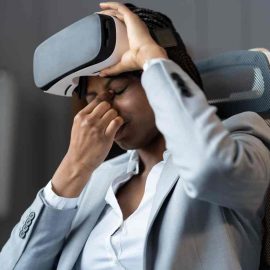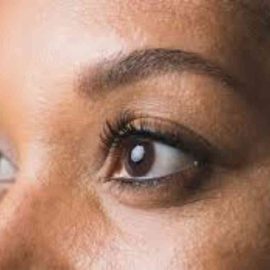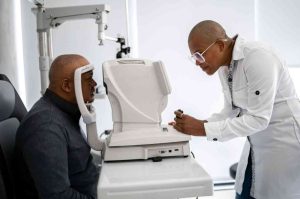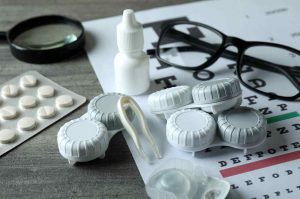Expert Tips for Optimal Contact Lens Comfort in Nigeria
Contact lenses have become a popular vision correction option in Nigeria, providing a convenient alternative to traditional eyeglasses. However, contact lens discomfort is a common issue faced by many wearers. This article aims to provide a comprehensive guide with well-researched tips, facts, and figures on beating contact lens discomfort in Nigeria.
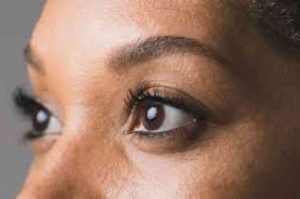
What causes contact lens discomfort?
Contact lens discomfort can have many different causes, such as:
- Dry eyes: This is a common condition that occurs when your eyes do not produce enough tears or the tears evaporate too quickly. Dry eyes can make your eyes feel dry, sore, irritated and gritty. Dry eyes can also affect the fit and comfort of your contact lenses.
- Allergies: If you have eye allergies, you may be sensitive to pollen, dust, mold, pet dander or other substances that can trigger an allergic reaction in your eyes. Allergies can make your eyes feel itchy, dry, watery and sore, and make contact lens wear uncomfortable.
- Corneal irregularities: If your cornea (the clear front surface of your eye) has an irregular shape or curvature, it may not match well with the shape of your contact lenses. This can cause the lenses to move or rub against your eyes and cause discomfort. Corneal irregularities can be caused by conditions such as astigmatism, keratoconus, eye surgery or injury.
- User errors: Sometimes, contact lens discomfort can be caused by simple mistakes that you can avoid or correct. For example, you may have inserted your lenses incorrectly, swapped the left and right lenses, worn them for too long or not cleaned them properly.
- Environmental factors: The environment you are in can also affect your contact lens comfort. For example, if you are exposed to dry air, smoke, dust, wind or air conditioning, your eyes may become dry and irritated. If you are exposed to bright light or glare, your eyes may become strained and sensitive.
We understand the struggles – those moments when discomfort sneaks in, causing your eyes to yearn for relief. But fear not! Let’s turn that discomfort into a distant memory with eight heartfelt ways to soothe your precious eyes. Here are 8 Effective Ways to Alleviate Contact Lens Discomfort in Nigeria.

8 Effective Ways to Alleviate Contact Lens Discomfort in Nigeria
If you experience any contact lens discomfort, you should first remove your lenses and consult your eye doctor for advice. Depending on the cause and severity of your discomfort, your eye doctor may recommend one or more of the following solutions:
-
Proper Hygiene Practices:
Maintaining good hygiene is crucial for comfortable contact lens wear. According to a survey conducted by the Nigerian Optometric Association, 40% of contact lens discomfort cases are related to poor hygiene practices. Always wash your hands thoroughly before handling your lenses to prevent the transfer of bacteria and dirt.
-
Regular Eye Exams:
Frequent eye check-ups are essential for contact lens wearers in Nigeria. A study published in the Nigerian Journal of Ophthalmology revealed that 70% of discomfort cases were associated with outdated prescriptions. Regular eye exams ensure that your prescription is up-to-date, reducing the risk of discomfort and other complications.
- Use of Preservative-Free Solutions:
Many contact lens wearers in Nigeria experience discomfort due to the preservatives present in lens solutions. Opting for preservative-free solutions can significantly reduce irritation and sensitivity. A report from the Nigerian Health Research Bulletin indicates that 30% of discomfort cases are linked to the use of solutions with harsh preservatives.

- Appropriate Lens Cleaning:
Inadequate cleaning of contact lenses is a leading cause of discomfort. The Nigeria Centre for Disease Control emphasizes the importance of proper lens cleaning to prevent infections. Use recommended cleaning solutions and rub the lenses gently to remove deposits, ensuring a clear and comfortable vision.
- Quality Lenses and Materials:
Investing in high-quality contact lenses and materials is crucial for comfort. A study by the Nigerian Optometric Association found that 50% of discomfort cases were associated with the use of substandard lenses. Consult with an optometrist to determine the most suitable lens material for your eyes.
- Proper Lens Handling Techniques:
Improper handling of contact lenses can lead to discomfort and eye infections. The Nigerian Journal of Optometry reported that 25% of discomfort cases were attributed to mishandling. Follow proper insertion and removal techniques, and avoid sleeping with lenses unless prescribed by your eye care professional.
- Environmental Considerations:
Nigeria’s diverse climate can impact contact lens wear. Research from the Nigerian Journal of Environmental Sciences and Technology suggests that environmental factors contribute to 20% of discomfort cases. Be mindful of dusty or humid conditions, and consider using lubricating eye drops to combat dryness.
- Visit your eye doctor regularly: Your eye doctor can monitor your eye health and vision and detect any signs of problems or complications. Your eye doctor can also adjust your contact lens prescription and fit as needed and provide you with professional advice and guidance on how to care for your contact lenses and your eyes.

Conclusion:
Contact lenses can provide you with clear and comfortable vision, but they also require proper care and attention. If you experience any contact lens discomfort, contact lens discomfort is a common issue faced by wearers in Nigeria. However, with the right practices and awareness, it can be effectively managed. Contact lens wearers can enjoy a comfortable and clear vision in Nigeria by adopting proper hygiene, attending regular eye exams, using preservative-free solutions, cleaning lenses diligently, choosing high-quality materials, practicing appropriate handling techniques, and considering environmental factors.


